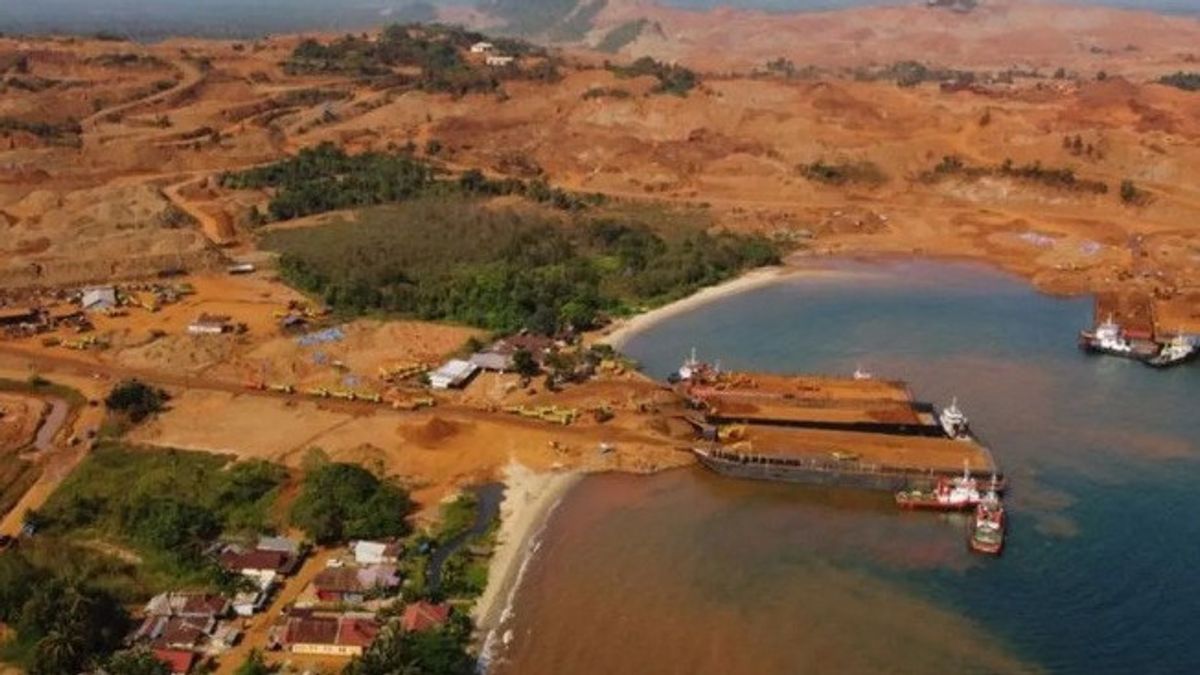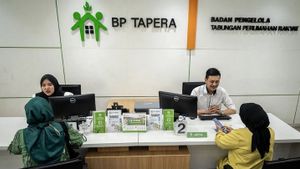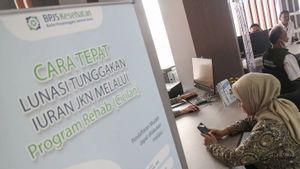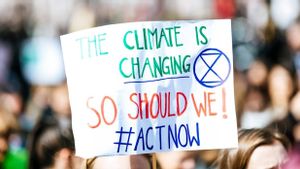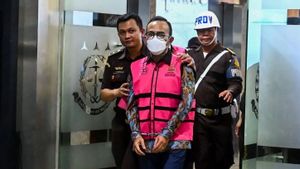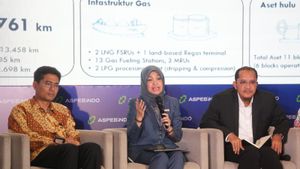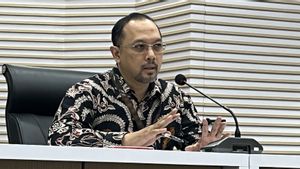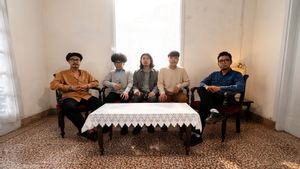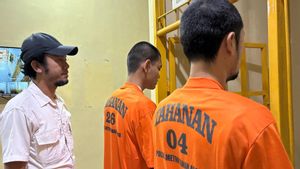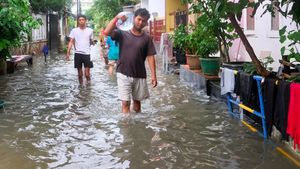JAKARTA The government's decision to allow religious community organizations (ormas) to have mining management permits is like plunging them into a dirty industry circle that damages the environment.
The regulation was signed by President Joko Widodo in Government Regulation Number 25 of 2024 which is an amendment to Government Regulation Number 96 of 2021 concerning the Implementation of Mineral and Coal Mining Business Activities.
Coordinating Minister for Economic Affairs Airlangga Hartarto said religious organizations received privileges from President Jokowi to manage coal mining businesses.
"Religious organizations receive privileges or are privileged by the President that Islamic organizations may have mines," he said when giving a speech entitled "Inclusive Financial Socialization for Santri and the Community Around Islamic Boarding Schools" in the agenda of the 46th Islamic Da'wah Council (MDI) in the Mama Bakry Islamic Boarding School, Leuwisadeng, Bogor Regency, West Java, Saturday (1/6/2024).
Based on these regulations, the government allows business entities belonging to religious organizations to receive priority offers to manage the special mining business permit (WIUK) area, which has been prioritized for state business entities.
Along with the issuance of the PP, Investment Minister Bahlil Lahadalia stated that he would soon issue a coal management mining business permit (IUP) for the Nahdlatul Ulama Executive Board (PBNU), to optimize the role of religious organizations.
"On the direction and considerations of several ministers, even approved by President Jokowi, we will provide coal concessions with large reserves to PBNU to be managed in order to optimize the organization," said Bahlil, quoting Antara.
The issue related to mineral and coal mining concessions to the younger generation of NU has indeed been mentioned by Jokowi in 2021. The reason is to move small economic carriages.
This was stated by Jokowi when giving a speech at the opening of the 34th NU Congress in Lampung on December 22, 2021.
"I offer the young people a forum, it can be PT or business group. And the government, I prepare, if ready, I prepare concessions, whether it's a concession, it's up to you to use it for agricultural land, please," said Jokowi at that time.
"I am also preparing mineral and coal concessions, which want to move in nickel businesses, for example, coal businesses, bauxite businesses, copper businesses, please," he added.
PBNU Chairman KH Yahya Cholil Staquf said granting mining permits for mass organizations was a bold step from President Jokowi in expanding the use of Natural Resources (SDA) for the benefit of the people.
Representing PBNU, Gus Yahya expressed his gratitude to President Jokowi for the expansion of the granting of mining permits to mass organizations. For NU, this is a responsibility that must be carried out as well as possible in order to achieve the noble goal of the affirmation policy.
"Nahdlatul Ulama is ready with qualified human resources, complete organizational devices and strong enough business networks to carry out these duties and responsibilities," he stressed.
A positive response was also conveyed by the General Chairperson of the Communion of Churches in Indonesia (PGI) Gomar Gultom. He said that giving IUP to religious organizations is a form of Jokowi's commitment to involve elements of society in managing the natural wealth of the country.
In addition, Gomar also said that this shows the president's appreciation to religious organizations that have contributed from the start to developing the country.
But on the other hand, why do many parties reject President Jokowi's decision? An international environment NGO that handles the climate crisis, 350.org Indonesia, hopes that PBNU will dare to reject the government's offer to manage coal mines.
NU's involvement, as the largest Islamic organization in Indonesia, according to 350.org will have a bad impact not only on NU, but also on the general public.
Fidaus Cahyadi, as Indonesia Team Lead Interim 350.org Indonesia, said that the government seemed to want to plunge NU into a dirty industry circle that damaged the environment.
The burning of coal has an impact on increasing greenhouse gas (GHG) emissions, the cause of the climate crisis, explained Fidaus, in a statement received by VOI.
"This climate crisis has caused various disasters in various parts of the world, including Indonesia," he added.
Not only that, continued Firdaus Cahyadi, coal mines also cause environmental and social problems for the surrounding community.
"Coal mines have destructive characteristics because they open land and change the landscape widely," he explained.
The destructive characteristics will, of course, have an impact on the environment such as land fertility reduction, water quality, air quality, threats to biodiversity and other environmental pollution around the mining area.
Environmental activists continue to campaign to stop the use of fossil energy in recent years. Fossil energy is considered to have a negative impact because it produces air pollution that harms humans and the ecosystem.
The idea to abandon the use of fossil energy, including coal, is also echoed in a number of countries to switch to renewable energy. Firdaus questioned this latest regulation because according to him, it has plunged religious organizations into managing industries that do not have a future.
SEE ALSO:
"If the reason is people's welfare, why doesn't the government provide opportunities for NU and other religious organizations to develop community-based renewable energy such as solar, micro-hydro power plants and so on?" asked Firdaus.
In fact, based on research by Celios and 350.org entitled Economic Impact and Community-Based Renewable Energy Financing Opportunities, it shows that renewable energy not only helps reduce the negative impact of the use of fossil energy but is also able to create contributions to Gross Domestic Product (GDP) of up to IDR 10,529 trillion for 25 years.
"The research also reveals that community-based renewable energy is also able to reduce poverty to more than 16 million people," he said.
Not only that, from the employment side, community-based renewable energy also opens up job opportunities of 96 million people, Firdaus added.
The English, Chinese, Japanese, Arabic, and French versions are automatically generated by the AI. So there may still be inaccuracies in translating, please always see Indonesian as our main language. (system supported by DigitalSiber.id)
